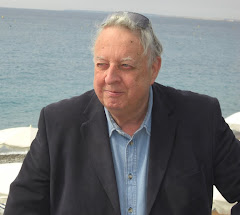I listened to nine string quartets by
Haydn, played by the Takacs Quartet, and the Goldmund Quartet. Very
fine indeed. I then listened to the six string quartets that Mozart
dedicated to Haydn (played by the Hagen Quartett). It was like going
from Grant's blended whisky (my favourite blend) to a 12-year old
Caol Ila malt (my favourite single malt). Mozart's music is on
a different plane from Haydn's. Nothing wrong with Josef Haydn; it's
just that Mozart's music is so much more sophisticated, complex, and
subtle and juxtaposing the two composers with their better quartets
just points up the difference.
No such whisky contrast going from J.S.
Bach to Georg Handel. I have just embarked on listening to the
cantatas and duets that Handel wrote in Italy when he was in his very
early twenties. Bach is Caol Ila; Handel a 15-year old
Laphroaigh (to continue the whisky metaphors). They are very
different in taste, but equal in quality. Handel had a gift all his
life of being able to surround himself with highly gifted
instrumentalists and singers: violinists, bassoonists, cellists,
oboists, or whatever. He himself was a master on any keyboard (like
Bach). Fabio Bonizzoni and his group La Risonanza, often together
with the superb soprano Roberta Invernezzi, produced seven CDs
of Handel's Italian cantatas, plus an eighth CD with the Italian
duets. It's a magnificent collection for Handel lovers. (Glossa).
The works often need highly talented
solo instrumentalists, plus first-rate singers, which makes most of
them unsuitable for amateur performances. Be it the highly virtuoso
violin solos in Il Delirio Amoroso (Cardinal Pamphili),
written probably for a band headed by Arcangelo Corelli, or the
virtuoso soprano needed for Tra le Fiamme (Pamphili, again)
the 22 year old Handel displays amazing compositional powers. For
Handel lovers, it is always interesting to meet familiar tunes or
themes that he was to re-use throughout his life, albeit in new garbs
to match changing players or singer circumstances. Either Handel
travelled with huge trunks containing manuscripts, or he had a quill
pen with many terabytes of extended memory.
I often bemoan the fact that pretty
well all the CDs in my collection are listened to only once, or
rarely thereafter. This does not hold true for the cantatas of Bach,
or Handel; they are often spinning on my CD player.
